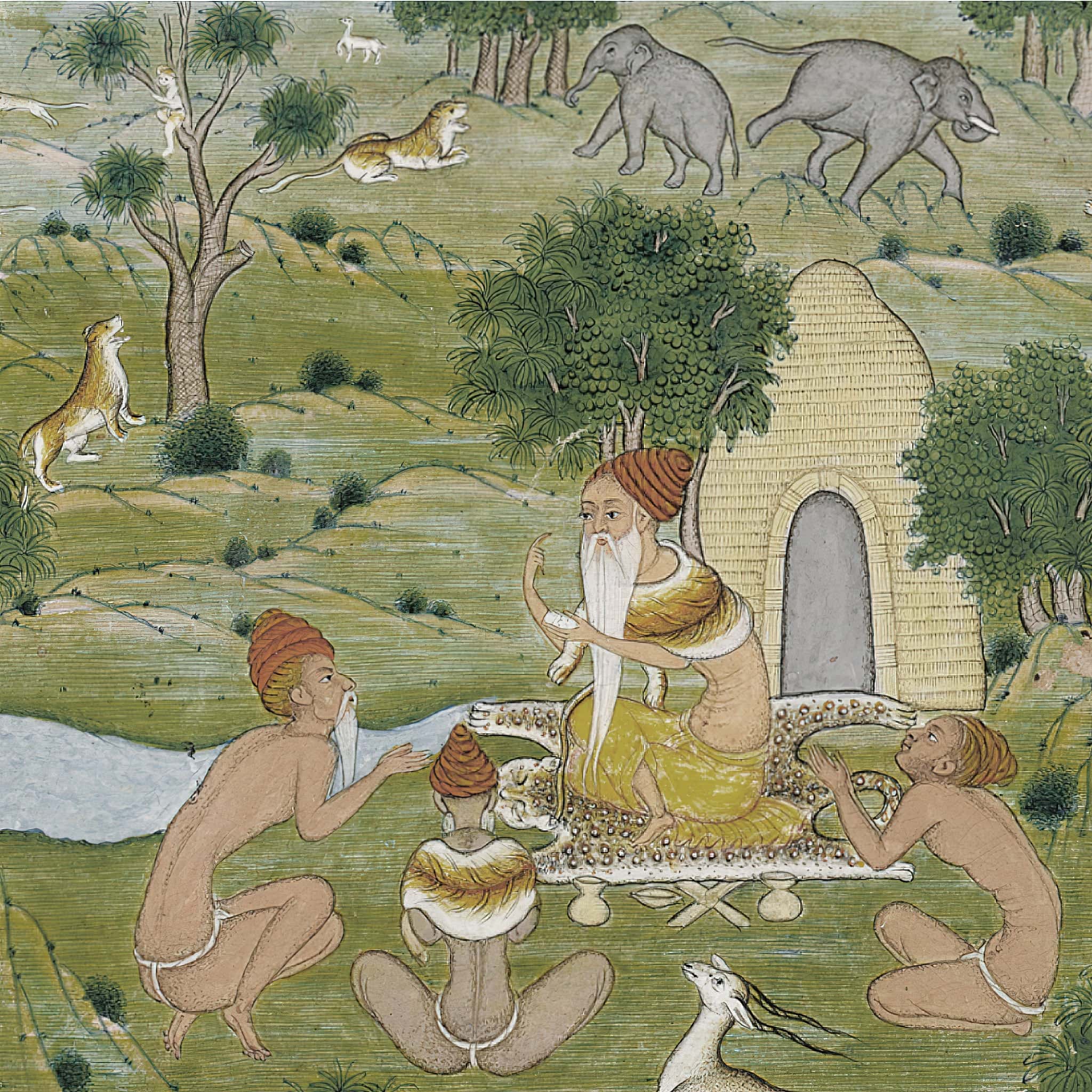
A SYMBOL FOR THE UNSPEAKABLE
In various spiritual traditions the term grain of gold or gold can be regarded as a symbol that refers to the Unspeakable, Indestructible, and Infinite essence of one’s true nature. It points to the innermost core of each individual in their pursuit of the highest truth.
In the Upanishads (a collection of early scriptures in Hinduism) Śvetaketu [*the son of the sage Uddālaka, representing the seeker of knowledge] went to his teacher’s house when he was twelve years old and studied the Vedas till he was twenty-four. Returning home, his father said to him: “Śvetaketu, since you are now so serious, consider yourself well read and are so conceited, have you, my dear, ever asked for that instruction by which one hears what cannot be heard, by which one perceives what cannot be perceived, by which one knows what cannot be known?” Śvetaketu asked: “What is that instruction, venerable Sir?”
“Just as, my dear Śvetaketu, with one lump of clay all that is made of mud is known, the modification being only a name, arising from speech, while the truth is that all is clay. Just as, my dear, with one grain of gold all that is made of gold is known, the modification being only a name, arising from speech, while the truth is that all is gold. And just as, my dear, by one pair of nail-scissors all that is made of iron is known, the modification being only a name, arising from speech, while the truth is that all is iron – even so, my dear, is that instruction.” (6:1:2-6)
The father is here instructing the son in the knowledge of the Original and its modifications. He says that all modifications are only names, they are only verbalizations, the product of speech. But sometimes the name becomes all-important with the result that the original substance is forgotten. When man gets caught up in the network of verbalizations, then he [is] ignorant of the very substance itself. There is an identification with the name and so the original is lost – nay, sometimes its very existence is denied.
In the Yoga Sūtras of Patañjali this is described as Asmitā or false identification and this arises because of Avidyā or ignorance.
When there is ignorance about the original nature of things, then man [is] caught in the process of false identification – he becomes a slave to the name, to the verbalized product.
Needless to say, without knowing the original nature of things, mere name is meaningless. The Many arise out of the One – they are modifications of the One. Without knowing the One, how can one understand the significance of the Many. When all modifications caused by the verbalizations cease, then there remains only the One, the One without a second, the One without any name. When all the names drop away, then what remains is the Nameless Being; the Origin and Source of all things.”
[From “The Call of the Upanishads” by Rohit Mehta]

